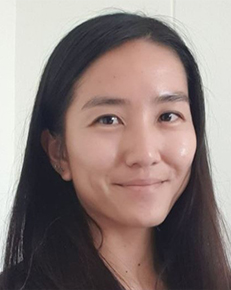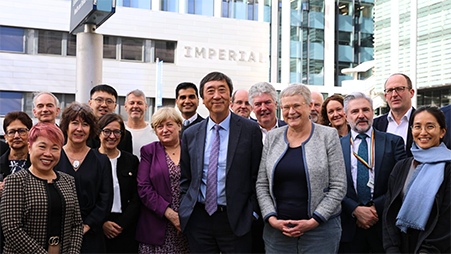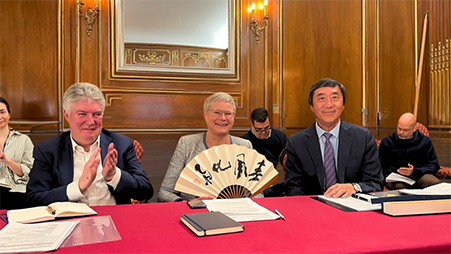News: LKCMedicine visits Imperial to explore New Research Opportunities
 | By Ng Ai Li |

Imperial College London and the Lee Kong Chian School of Medicine in Singapore are exploring new opportunities for collaboration in medical research as they enter the next phase of their partnership. This comes after the success of the two institutions’ 18-year partnership agreement, LKCMedicine, a collaboration between Nanyang Technological University, Singapore (NTU Singapore) and Imperial.
The two-day visit built on a recent trip to Singapore by Professor Deborah Ashby in her new role as Dean of Medicine. Both Imperial and LKCMedicine are eager to leverage their strong ties and have identified several key research areas as ripe for collaborative working.
These include two established areas of collaboration in Respiratory Medicine and Infectious Disease, and Neuroscience and Neurology. In addition to these, three new areas were identified as promising opportunities for further development: Environmental Health; Artificial Intelligence and Digital Health; Nutrition and Microbiome.
Welcoming LKCMedicine, Professor Ashby said: “I hope that what we can get out of this visit are research opportunities built on enthusiasm and mutual interests, and also the chance to identify what we can do better, together.”
During the opening meeting, Professor Ashby gave an overview of developments at Imperial since her last visit, including the formal identification of Singapore as a strategic overseas partner through Imperial Global: Singapore, Imperial’s first overseas research and innovation centre. This will see Imperial scientists working closely with university, industry, government, and third-sector partners in Singapore.
The first research programme taking place at the new centre is a major S$20million grant in collaboration with NTU Singapore to improve the security of medical devices and health data. The programme, IN-CYPHER, will leverage Imperial’s expertise in this area to establish Singapore as a global leader in health cybersecurity and AI for healthcare as it bolsters research and funding in these emerging areas.
During the visit, Professor Joseph Sung, Dean of LKCMedicine, set out LKCMedicine’s ambitions for the next phase of collaboration, including fostering collaborative research teams; establishing joint research programmes; and sharing best practices for joint training and development.

Professor Sung said: “We look forward to entering a new phase of our strategic partnership, braving into new areas of innovative research benefiting human health.”
The visit saw the formation of breakout groups to discuss existing research and education programs, refine research focus areas, and propose potential resources for grant applications and postdoc exchanges. Each group was led by researchers from both Imperial and LKCMedicine. Discussions during the breakout sessions reflected on possible short, medium, and long-term outcomes. Representatives from both Imperial and LKCMedicine presented these findings at the plenary session.
The visit is another signal of Imperial’s commitment to fostering international partnerships for scientific advancement and demonstrating the importance of cross-border collaboration in addressing global health challenges.
